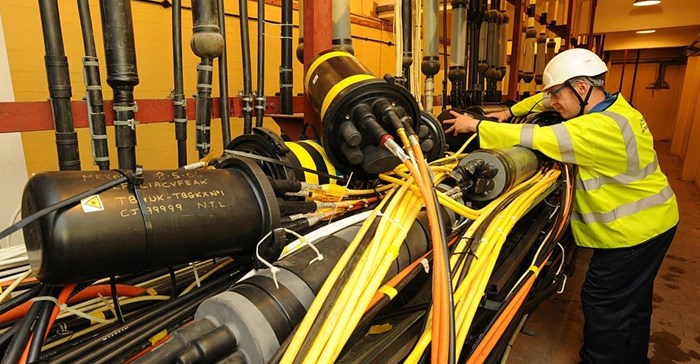
Top stories






More news


Marketing & Media
Ads are coming to AI. Does that really have to be such a bad thing?














They would be wrong. This isn't some new, fleeting technology fad. It is the future of connectivity and won't easily be replaced. It moves data at the speed of light - and until someone figures out how to do that faster, fibre represents the next quantum shift for technology.
According to Explainthatstuff.com, fibre can carry telephone calls, and emails, around the world in a seventh of a second. A single strand of fibre can, today, carry the entire world's internet. It is bottomless and its potential ultimately endless. Increasingly, the power of fibre, will not be just because it delivers high-speed, reliable connectivity, but because it enables the realisation of things we've only ever spoken about.
For the first time since McKinsey first noted its 'disruptive dozen', businesses and consumers are starting to see these become a reality, and a number of them, are facilitated by high quality, reliable connectivity. The Internet of Things, a world of 'smart' everything devices and the potential of an on-demand generation, has never been more possible. The convergence between the potential and the possibility is realised through fibre.
But for the vast majority of people, the conversation is still about fast internet, and that needs to shift too. Connectivity, like water and electricity, is becoming a utility. It is this utility based approach that helps to advance internet connectivity for schools and is fast-tracking a more mobile workforce, that doesn't necessarily operate from an office.
As more products are developed to be connected to the internet, and start generating big data, so the need for reliable, always available connectivity will increase and less emphasis will be placed on what it costs, and more on what it enables. But there's more to potential and possibility than just what fibre can make happen.

The reality is that while we are not currently talking about fibre to everyone, and to everyone's door, there is no doubt that the knock-on effect of more fibre, is an overall improvement in the connectivity experience. It would be short-sighted to expect that everyone is going to spend R500 on a service like this, but they will use R200 worth of data on a phone - and the expectation is a seamless, buffer-free data experience. With more and more fibre, we will have better access to cellular and Wi-Fi services. In turn, this will improve the delivery of these services to all.
There is a certain ubiquity that comes from a more generalised availability of fibre, be it in suburbs or business precincts across the country. And the promise of what this means for connectivity, access and that feeling of bringing the world closer to you, cannot be ignored.
So while what we use fibre for today, is different to what it is capable of doing, the future of a smarter, more connected world is not that far off.